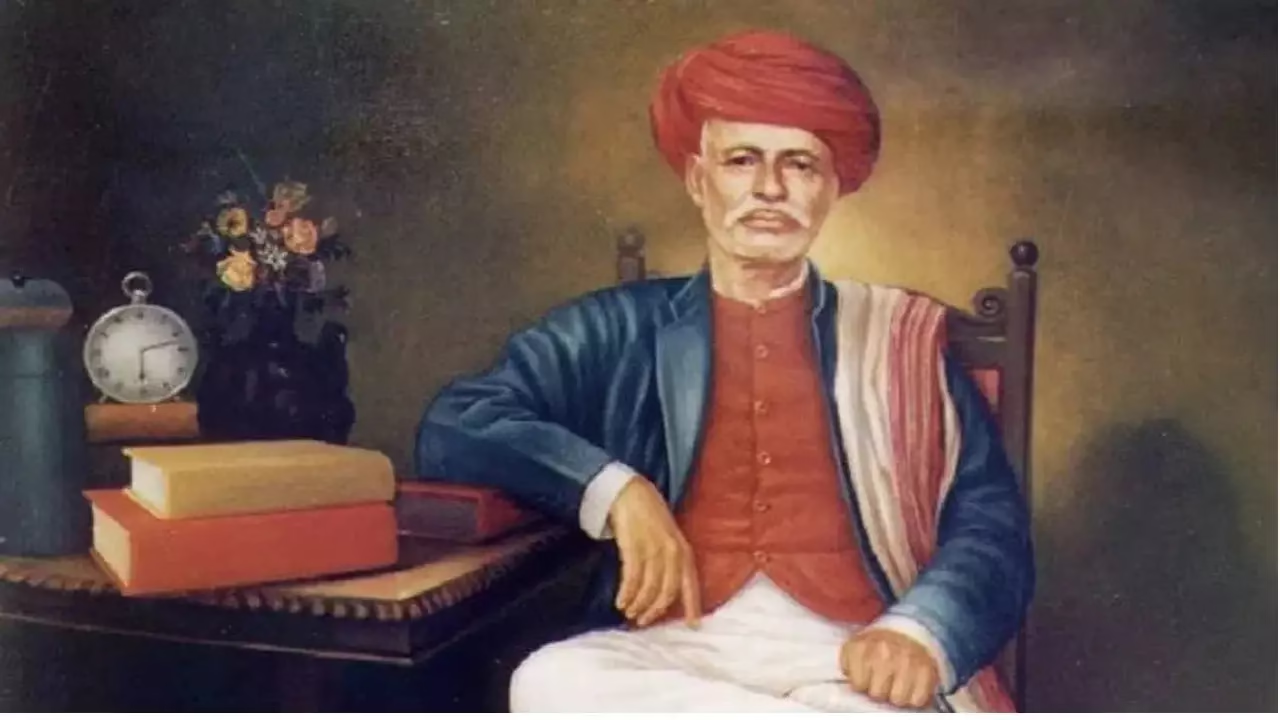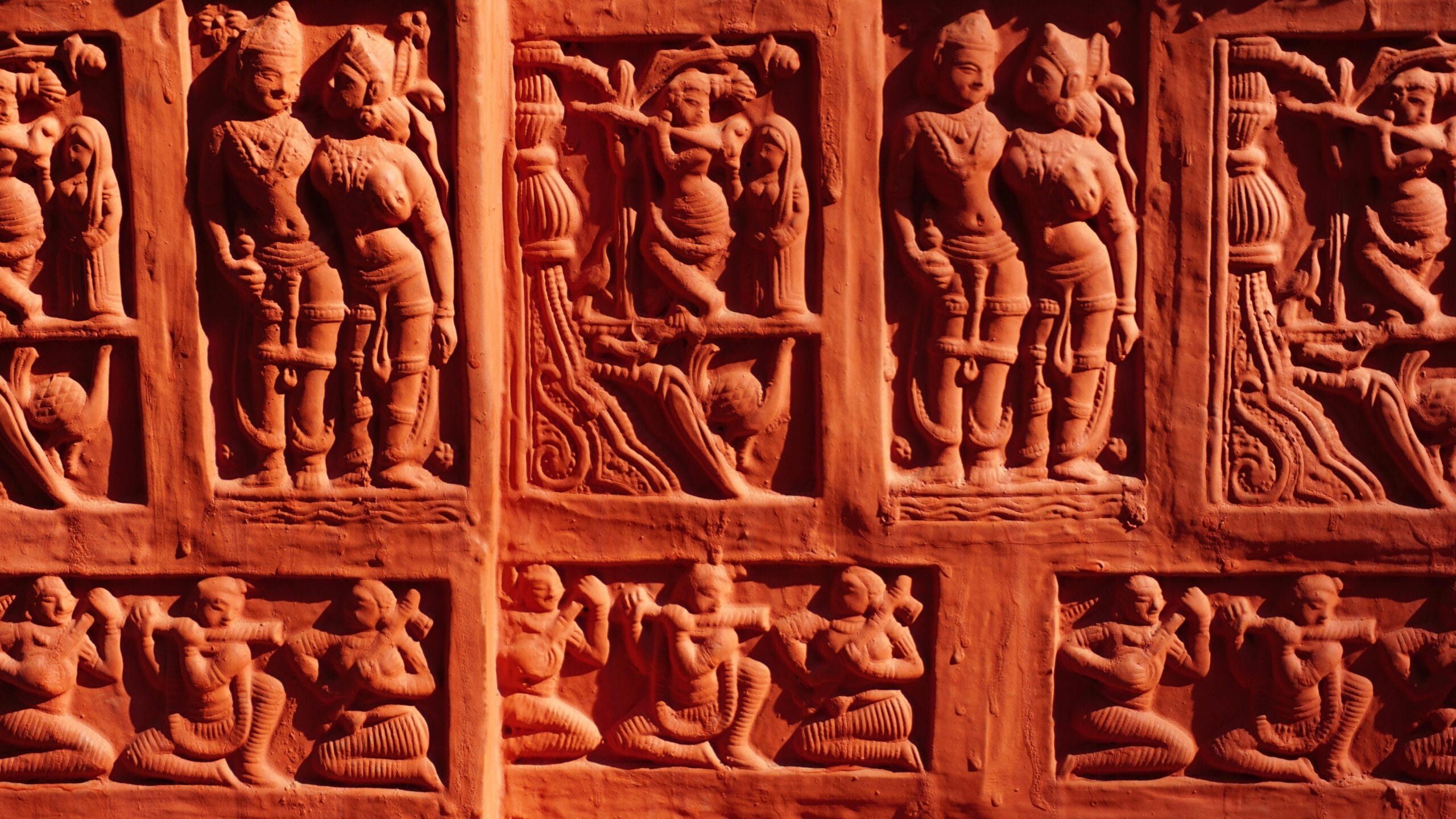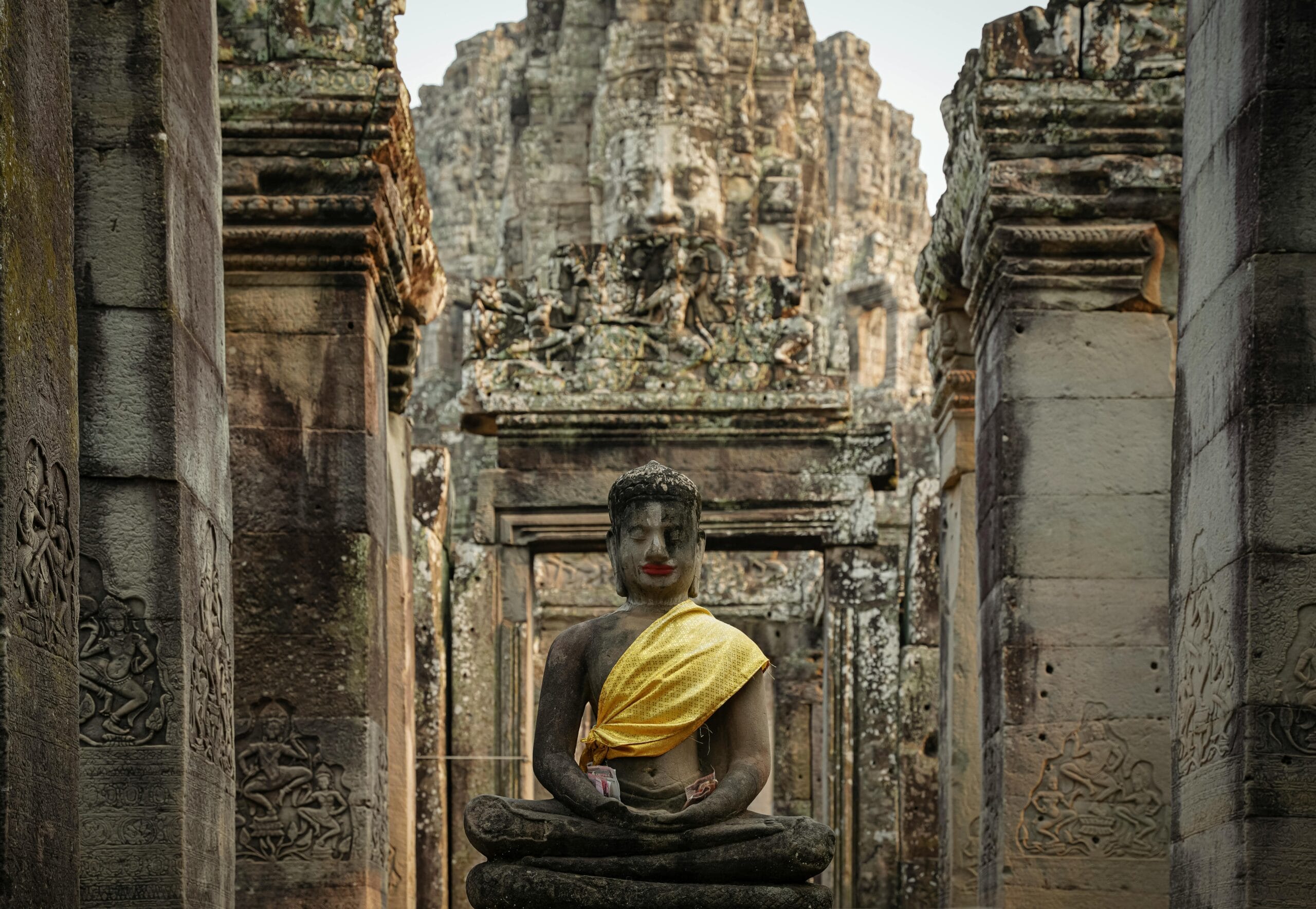Jyotiba Phule, also known as Mahatma Phule, was a 19th-century Indian social reformer, thinker, anti-caste social reformer and writer from Maharashtra. People regard him as one of the most important figures in the social reform movement in India. This article explores the life, ideology, and impact of Jyotiba Phule, highlighting his contributions to education, social justice, and the fight against Brahminical supremacy. Was Jyotiba Phule’s fight against caste like trying to empty an ocean with a spoon? Perhaps, but every spoonful made a difference.
Table of Contents
- Introduction
- Early Life and Education
- Anti-Caste Ideology
- Contribution to Education
- Ghulamgiri: A Critique of Caste
- Opposition to Brahminical Supremacy
- Legacy and Impact
- Wills
- Quotes From Ghulamgiri
- What Can You Do?
Disclaimer: To ensure clarity and understanding, here’s a list of common terms used in this article and their meanings in the given context:
- Brahminical System/Supremacy: A social hierarchy that gives Brahmins (the priestly class) the highest status, often leading to discrimination against other castes.
- Shudra: The lowest of the four traditional divisions of Indian society.
- Ati Shudras: Those considered outside the traditional caste system, often subjected to extreme forms of discrimination.
- Varna System: The four-tiered hierarchical division of society into Brahmins, Kshatriyas, Vaishyas, and Shudras.
- Manusmriti: An ancient legal text that codifies social rules and duties within the Varna system, often criticized for its discriminatory views.
- Scientific Temperament: A way of thinking that values reason, evidence, and questioning.
- Bahujan: Meaning “the majority,” it refers to the Shudra and Ati Shudra communities, representing the historically oppressed sections of society.
Introduction
In India, remembering social reformers is not as common as it should be. While some figures are given token recognition, their ideologies and the true extent of their work often remain unexplored. Today, on April 11th, we celebrate the birth anniversary of Jyotiba Phule, a visionary who challenged the deeply entrenched caste system and championed education for all. Understanding his life and work is crucial, especially today, when the very principles he fought for are still under threat.
Phule’s work extended beyond mere symbolism; he actively worked to dismantle the structures of inequality that plagued Indian society. Understanding his life and work is crucial, especially today, when the very principles he fought for are still under threat.
Early Life and Education of Jyotiba Phule
Born on April 11, 1827, Jyotiba Phule came from the Shudra caste, a community that faced severe social and economic discrimination. Despite facing numerous obstacles, he received an education, a privilege that had been historically denied during that time. This access to knowledge became the foundation for his later work as a social reformer.
Challenges and Opportunities
Phule’s education was not without its challenges. In a society rigidly divided by caste, access to learning was largely restricted to the upper castes, particularly Brahmins. However, with the support of some progressive individuals, he was able to overcome these barriers and gain an understanding of the world that would later fuel his reformist zeal.
Influence of Western Thought
Despite these challenges, Phule’s exposure to Western thought and Enlightenment ideals played a significant role in shaping his worldview. He was particularly influenced by the emphasis on reason, individual rights, and social justice. These principles provided him with a framework to critique the existing social order in India and advocate for a more equitable society.
Early Experiences with Caste Discrimination
Phule’s personal experiences with caste discrimination deeply impacted his thinking. He witnessed firsthand the injustices and inequalities faced by the Shudras and other marginalized communities. These experiences fueled his determination to challenge the caste system and create a society where everyone had equal opportunities.
Anti-Caste Ideology of Jyotiba Phule
Jyotiba Phule’s ideology was centered on the annihilation of the caste system. He believed that the caste system was the root cause of social and economic inequality in India and that it needed to be completely dismantled to create a just society.
Critique of the Varna System
Phule launched a scathing critique of the Varna system, the hierarchical division of society into Brahmins, Kshatriyas, Vaishyas, and Shudras. He argued that this system was inherently unequal and unjust, as it assigned individuals their social status and occupation based on birth rather than merit. He saw the Varna system as a tool used by the upper castes to maintain their power and privilege.
Rejection of Brahminical Texts
Phule rejected the authority of Brahminical texts such as the Vedas and the Manusmriti, which he saw as perpetuating the caste system and justifying the oppression of the lower castes. He argued that these texts were not divinely ordained but were instead created by Brahmins to serve their own interests. He encouraged people to question the authority of these texts and to reject any ideology that promoted inequality and discrimination.
Emphasis on Equality and Rationality
Phule’s ideology was deeply rooted in the principles of equality and rationality. He believed that all individuals were equal and deserved the same rights and opportunities, regardless of their caste, gender, or religion. He also emphasized the importance of reason and evidence-based thinking, encouraging people to question traditional beliefs and practices and to embrace a scientific temperament.
Contribution to Education from Jyotiba Phule
Jyotiba Phule recognized that education was a powerful tool for social transformation. He believed that access to education could empower marginalized communities and enable them to challenge the existing social order. If education is the cornerstone of a just society, what kind of foundation were the marginalized communities standing on before Phule’s interventions? With this conviction, he dedicated his life to promoting education for all, particularly for women and the lower castes.
Founding of Schools for Girls and Lower Castes
In 1848, Jyotiba Phule and his wife, Savitribai Phule, founded the first school for girls in Pune, defying the prevailing social norms that restricted education to boys and upper-caste individuals. They also established schools for children from the lower castes, providing them with access to education that had been historically denied to them. Their efforts faced strong opposition from conservative elements in society, but they persevered in their mission to educate the marginalized.
Advocacy for Universal Education
Phule advocated for a system of universal education that would be accessible to all, regardless of their social background. He believed that education should be free and compulsory and that it should be designed to promote critical thinking, social awareness, and a sense of civic responsibility. He also emphasized the importance of vocational training, which would equip individuals with the skills they needed to earn a livelihood and contribute to society.
Role of Savitribai Phule
Savitribai Phule played a crucial role in her husband’s educational endeavors. She not only co-founded the first school for girls but also served as its first teacher. She faced immense social pressure and harassment for her work, but she remained steadfast in her commitment to educating girls and women. Her courage and dedication made her a pioneer in the field of women’s education in India.
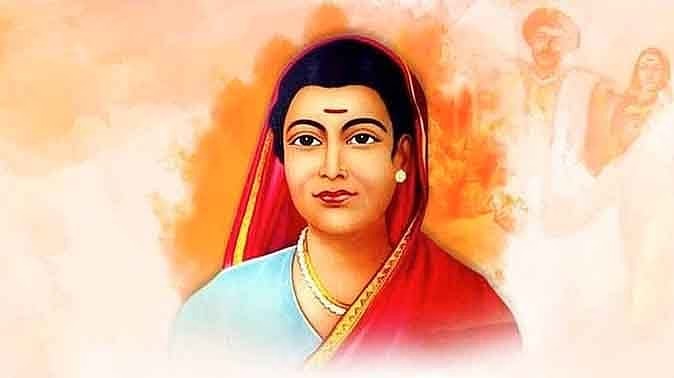
Ghulamgiri: A Critique of Caste
In 1873, Jyotiba Phule published his seminal work, Ghulamgiri (Slavery), a scathing critique of the caste system and Brahminical supremacy. The book is considered a landmark in the history of anti-caste literature and remains a powerful indictment of social inequality in India.
Deconstruction of Hindu Mythology
In Ghulamgiri, Phule deconstructed Hindu mythology, challenging the traditional narratives that legitimized the caste system. He reinterpreted the stories of gods and goddesses, exposing the inherent biases and inequalities that they contained. By questioning the authority of these myths, he sought to undermine the ideological foundations of the caste system.
Analysis of Economic Exploitation
Phule also analyzed the economic dimensions of the caste system, highlighting how the lower castes were systematically exploited and denied access to resources and opportunities. He argued that the caste system was not just a social hierarchy but also an economic system that perpetuated poverty and inequality. He called for a redistribution of wealth and resources to create a more just economic order.
Impact of British Rule
Phule examined the impact of British rule on Indian society, arguing that while it brought some benefits, it also reinforced existing inequalities. He criticized the British for their failure to address the caste system and for their reliance on Brahminical elites in administering the country. He called for a more inclusive and equitable system of governance that would protect the rights of all citizens.
Opposition to Brahminical Supremacy
Jyotiba Phule was a staunch opponent of Brahminical supremacy, the dominance of Brahmins in social, religious, and political life. He believed that Brahmins had used their position to exploit and oppress the lower castes and that their power needed to be challenged to create a more just society.
Criticism of Religious Practices
Phule criticized the religious practices and rituals that were used to reinforce Brahminical supremacy. He argued that these practices were often based on superstition and ignorance and that they served to perpetuate social inequality. He encouraged people to reject these practices and to embrace a more rational and egalitarian approach to religion.
Challenge to Social Hierarchy
Phule directly challenged the social hierarchy that placed Brahmins at the top and the lower castes at the bottom. He argued that this hierarchy was arbitrary and unjust and that it needed to be replaced with a system based on equality and merit. He advocated for the abolition of caste-based discrimination and for the creation of a society where everyone had the opportunity to succeed, regardless of their social background.
Call for Social Reform
Phule called for comprehensive social reforms to address the inequalities and injustices perpetuated by Brahminical supremacy. He advocated for the abolition of untouchability, the elimination of caste-based discrimination, and the promotion of education and economic empowerment for all. He believed that these reforms were essential for creating a truly just and equitable society in India.
Legacy and Impact
Jyotiba Phule’s legacy continues to inspire social reformers and activists in India and around the world. His ideas and work have had a profound impact on the fight against caste discrimination and for social justice. He is remembered as a visionary leader who challenged the status quo and fought for a more equitable and just society.
In summary, Jyotiba Phule’s unwavering commitment to education, his relentless critique of the caste system, and his advocacy for social justice have left an indelible mark on Indian society. His work continues to resonate today, reminding us of the ongoing need to challenge inequality and strive for a more just and equitable world.
Influence on Later Social Movements
Phule’s ideas and work have had a significant influence on later social movements in India, including the Dalit movement and the women’s rights movement. His emphasis on equality, rationality, and social justice has inspired generations of activists to fight for a more just and equitable society. His legacy continues to be celebrated and studied by scholars and activists alike.
Recognition and Awards
Phule’s contributions to society have been widely recognized and celebrated. He was bestowed with the title of “Mahatma” for his exceptional work in the field of social reform. His birth anniversary is celebrated every year as a day to commemorate his life and work and to reaffirm the commitment to social justice and equality.
Contemporary Relevance
Phule’s ideas and work remain highly relevant in contemporary India, where caste discrimination and social inequality continue to be major challenges. His emphasis on education, empowerment, and social justice provides a roadmap for creating a more equitable and just society. His legacy serves as a reminder that the fight against inequality is far from over and that continued efforts are needed to create a society where everyone has the opportunity to thrive.
Wills
In his final years, Phule faced paralysis, which limited his ability to write with his right hand. Undeterred, he continued to write with his left hand. Three years before his death, he wrote his will, showcasing his progressive views.
Comparison with Tulsidas
While Tulsidas in his Ramcharitmanas stated that Brahmins, regardless of their merit, are always worthy of respect and Shudras, regardless of their virtues, are not, Phule’s work took a different approach. He adopted Yashwant, a child from a Brahmin widow, and declared him his heir.
The Story of Yashwant
In that era, Brahmin widows were often denied remarriage. Exploitation was rampant, leading to unwanted pregnancies. When a teacher who taught at a school run by Savitribai Phule and Jyotiba Phule became absent, Savitribai discovered the teacher’s sister was pregnant after being exploited. The Phules took the pregnant woman, Kashi, into their home, cared for her, and adopted her child, Yashwant. This act reflects their rejection of the Brahmanical system’s treatment of women and their commitment to social justice.
Conditions for Inheritance
Phule’s will stipulated that Yashwant would inherit his property. However, he added a condition: if Yashwant did not pursue education and instead engaged in immoral behavior, the property should be given to a deserving child from the Mali (gardener), Kunbi (cultivator), or Dhangar (shepherd) communities. This demonstrates Phule’s unwavering commitment to social justice and his belief that wealth should be used for the betterment of society, not squandered.
Read more about Yashwant here.
Quotes From Ghulamgiri
- Homer wrote that the day a person becomes a slave, half of their virtues are destroyed.
- Colonel G.G. Helly wrote in Fisheries in India, “The system of government in India is not designed to build the character of the people. The existing education system has done nothing but over-educate a few privileged people, while the majority of the country remains isolated from the mainstream. This has happened because of the wrong and unethical policies of Brahminical supremacy, which is hindering the civilization and development of the country.”
- Those Brahmins are never philanthropic.
- Brahmins flaunt their vast knowledge of ancient learning, they have acquired immense wealth and power, but what benefit has society received from all of this?
- For their own selfish ends, Brahmins have spread the most vile superstitions.
- Unless this obsession with Brahminical privilege ends, the nation cannot progress.
What Can You Do?
Inspired by Jyotiba Phule’s life and work, here are a few things you can do to contribute to social justice and equality:
- Educate Yourself: Read books and articles about Jyotiba Phule, the caste system, and other social justice issues.
- Challenge Discrimination: Speak out against caste-based discrimination and other forms of inequality.
- Support Organizations: Donate to and volunteer with organizations working to promote education and empowerment for marginalized communities.
- Promote Rationality: Embrace reason and evidence-based thinking in your own life and encourage others to do the same.
- Share Knowledge: If you found this article valuable, share it to spread awareness about Jyotiba Phule and his profound impact on social reform. By sharing, you contribute to educating others and promoting the values he championed.
By following Phule’s example and actively working to create a more just and equitable society, we can honor his legacy and build a better future for all.
Read more about reservations and their myths.
Find out more about Court Judgements on Reservations.
Read the book yourself to learn more about Jyotiba Phule and his views.
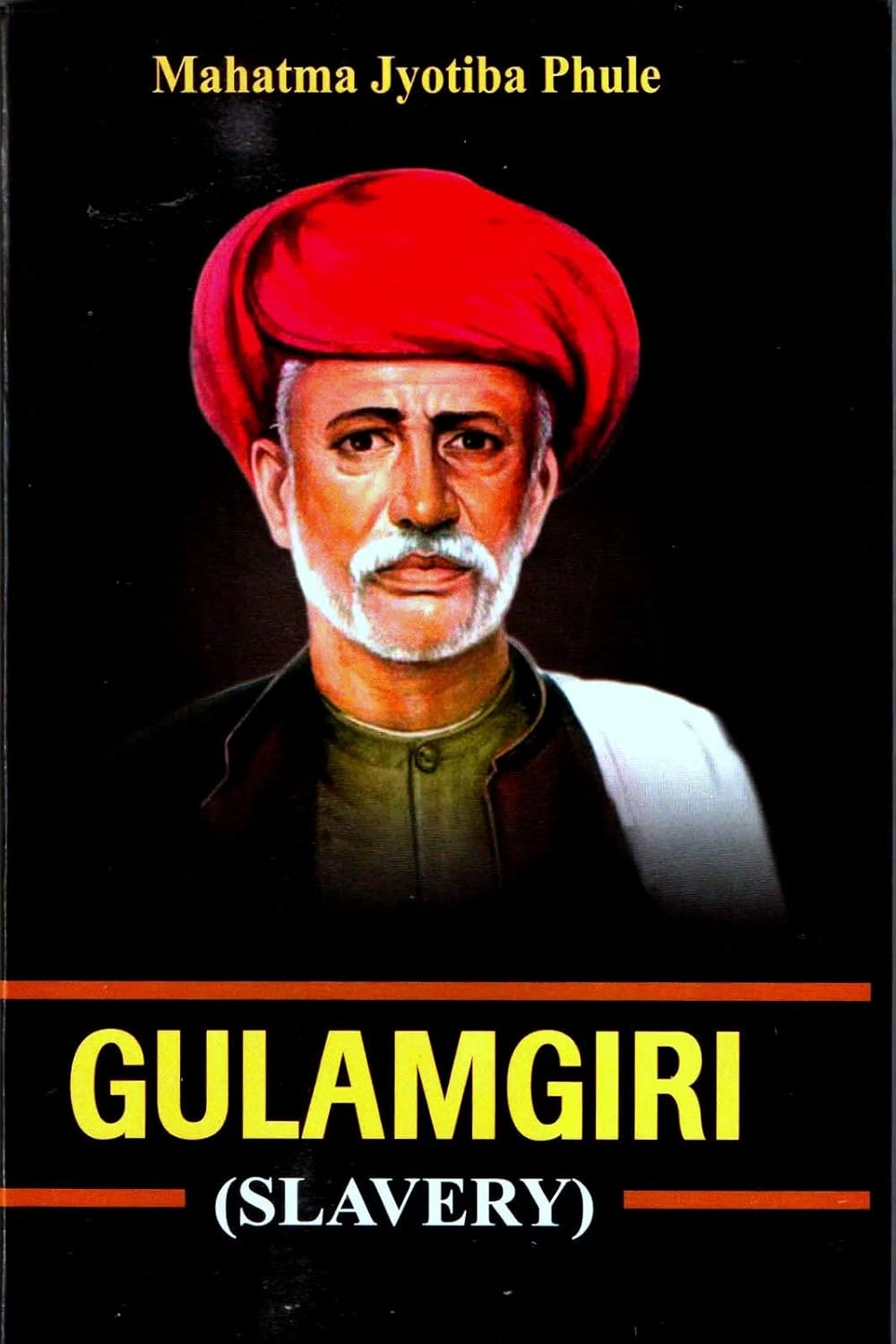
“Gulamgiri” (Slavery), written by Mahatma Jyotirao Phule in Marathi in 1873, is a foundational text in the anti-caste movement in India. While the title translates directly to “slavery,” Phule’s understanding of the term extends beyond traditional chattel slavery to encompass the systemic oppression and exploitation faced by the lower castes, particularly the Shudras and Ati-Shudras, under the Brahmanical social order.
The book is structured as a dialogue between a Mali (gardener) and a Brahmin, allowing Phule to present his arguments in a clear and accessible manner. Through this format, he critiques the Hindu scriptures, Brahmanical dominance, and the inherent inequalities perpetuated by the caste system. Phule argues that the Brahmins, through their control over religious knowledge and social customs, had effectively enslaved the lower castes, denying them education, economic opportunities, and basic human dignity.
Do you disagree with this article? If you have strong evidence to back up your claims, we invite you to join our live debates every Sunday, Tuesday, and Thursday on YouTube. Let’s engage in a respectful, evidence-based discussion to uncover the truth. Watch the latest debate on this topic below and share your perspective!
